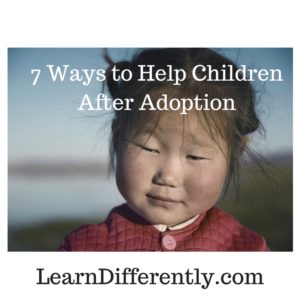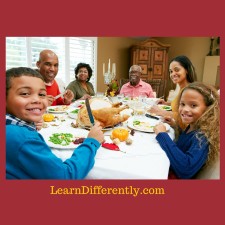7 ways to help children after adoption

by Kathy Kuhl I often talk with parents who have adopted or are fostering children who learn differently. Sometimes, after a child’s move from a hard situation, parents need extraordinary resources.

Favorite resources for families after adoption
- The Center for Adoption Support and Education (CASE) helps foster and adoptive families. It “promotes adoption awareness, enhances adoption sensitivity, and develops the skills for professionals and families to empower children to thrive.” CASE helps families around the world by providing webinars, post-adoption counseling, and other services. I recommend adoptionsupport.org, the CASE website for those foster and adoptive parents. I had the privilege of hearing their CEO Debbie Riley speak once, and recommend them.
- CASE has also published several books. See Beneath the Mask: Understanding Adopted Teens, by Debbie Riley, LCSW, with John Meeks, M.D., the W.I.S.E. Up series for kids.
- The Connected Child: Bring hope and healing to your adoptive family by Dr. Karyn Purvis, John Cross, and Wendy Lyons Sunshine looks good. I want to read and review it.
- The Empowered to Connect website aims to help churches and Christians be equipped to adopt children coming out of difficult situations. See their video.
- CHASK, Christian Homes And Special Kids, helped Christian families who want to adopt children with special needs. Their website has not been updated. They write, “For more than 12 years our joy has been encouraging parents with special needs children. We feel strongly that choosing life instead of genetic termination for special needs children is the Lord’s way….”
NATHHAN (NATional cHallenged Homeschoolers Associated Network). NATHAN encourages families homeschooling children with special needs, (adopted or not) is their sister organization. Their site has also not been updated lately, but lists resources to help families homeschooling children with different special needs.
Tips from parents
- Several of the families I interviewed when writing Homeschooling Your Struggling Learner adopted their special children, some from abroad.
If you suspect a learning disability, try to have the child tested immediately in his or her mother tongue. During the first year after adoption, it is hard to identify learning disabilities while a child is hard a work learning English. - If you are adopting children, learn about reactive attachment disorder and other emotional disorders than can result from lack of early care. I knew a boy who had difficulty relating to his parents. He was deeply hurt by being abandoned by his birth mother. (See also my review of Jolene Philo’s book, Does My Child have PTSD?)
In my faith, adoption is a model of God’s choosing people to be his own, a wonderful picture of love. I have seen a life rescued through foster care. To these parents, of any faith or none, thank you. I also offer special consultation rates.
What sources do you recommend for parents who have adopted or are fostering children or teens with learning challenges? Please share below.


